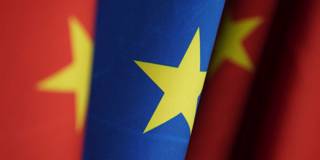After four years of Donald Trump’s “America First” agenda, the European Union could be forgiven for attempting to go it alone. But, if history is any guide, no single economy can compel China to change its most problematic behaviors.
WASHINGTON, DC – Late last month, the European Union and China released new details about the Comprehensive Agreement on Investment they concluded in December. On paper, EU negotiators made some progress in important areas like market access, investment liberalization, and sustainable development. But can an incremental bilateral agreement like the CAI really govern economic relations with today’s China?
To be sure, the EU has secured market access in important sectors – including electric vehicles, cloud computing, financial services, and health care – largely through the relaxation of equity restrictions. But detailed annexes to the agreement have yet to be made public, and it remains to be seen how many of these commitments are entirely new. It is possible that the deal largely codified steps China has already taken to boost market access, either through its own investment laws and regulations or on an ad hoc basis.
Furthermore, while equity restrictions form a formidable barrier to market access, they are hardly the only one. Foreign companies often face a series of other regulatory hurdles, which they can clear only by securing approvals from multiple Chinese government agencies – an often time-consuming and frustrating process. According to the latest US-China Business Council survey, conducted last spring, securing licensing and related approvals is the sixth-biggest challenge American firms face when operating in China.

WASHINGTON, DC – Late last month, the European Union and China released new details about the Comprehensive Agreement on Investment they concluded in December. On paper, EU negotiators made some progress in important areas like market access, investment liberalization, and sustainable development. But can an incremental bilateral agreement like the CAI really govern economic relations with today’s China?
To be sure, the EU has secured market access in important sectors – including electric vehicles, cloud computing, financial services, and health care – largely through the relaxation of equity restrictions. But detailed annexes to the agreement have yet to be made public, and it remains to be seen how many of these commitments are entirely new. It is possible that the deal largely codified steps China has already taken to boost market access, either through its own investment laws and regulations or on an ad hoc basis.
Furthermore, while equity restrictions form a formidable barrier to market access, they are hardly the only one. Foreign companies often face a series of other regulatory hurdles, which they can clear only by securing approvals from multiple Chinese government agencies – an often time-consuming and frustrating process. According to the latest US-China Business Council survey, conducted last spring, securing licensing and related approvals is the sixth-biggest challenge American firms face when operating in China.